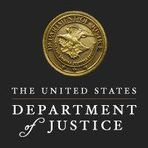The Ripple Effect of Presidential Pardons: A Closer Look at Trump’s Controversial Decisions
March 31, 2025, 4:42 am

Location: United States, District of Columbia, Washington
Employees: 10001+
Founded date: 1789
Total raised: $6.5M

Location: United States, Arizona, Phoenix
Employees: 501-1000
Founded date: 2014
Total raised: $228.42M
In the swirling waters of American politics, few actions create as much turbulence as a presidential pardon. Recently, President Donald Trump made headlines by pardoning three co-founders of the BitMEX cryptocurrency exchange and Trevor Milton, the founder of Nikola Corp. These decisions have ignited debates about justice, accountability, and the influence of money in politics.
Pardons are like a double-edged sword. They can restore freedom but also raise questions about fairness. In the case of BitMEX, Arthur Hayes, Benjamin Delo, and Samuel Reed faced serious charges. They pled guilty to violating the Bank Secrecy Act, failing to implement anti-money laundering protocols. Prosecutors painted a picture of BitMEX as a “money laundering platform,” accusing the founders of knowingly allowing U.S. customers to access their services while ignoring legal requirements. The exchange’s withdrawal from the U.S. market was deemed a façade, a mere smokescreen to mask their operations.
Despite these serious allegations, Trump’s pardons have shifted the narrative. The co-founders received probation and hefty fines, but now they walk free, their criminal records wiped clean. This raises eyebrows. Is this a case of justice served or a political favor? Critics argue that such pardons send a dangerous message: that wealth and connections can override accountability.
On the other side of the coin, we have Trevor Milton. Convicted of defrauding investors with false claims about Nikola’s electric and hydrogen-powered trucks, Milton’s story is a cautionary tale. He was sentenced to four years in prison but remained free pending appeal. His company, once valued at $30 billion, filed for Chapter 11 bankruptcy, leaving investors in the lurch. Milton’s actions, characterized by misleading statements and inflated promises, led to significant financial losses for many. Yet, Trump’s pardon has erased his conviction, sparking outrage among those who lost their savings.
Milton’s case is particularly striking. He leveraged his support for Trump as a shield against prosecution. The former CEO claimed he was “railroaded” by the government, drawing parallels between his plight and Trump’s own legal battles. This narrative resonates with a segment of the population that feels victimized by the system. It’s a classic tale of the underdog, but it’s also a reminder of the power dynamics at play.
The timing of these pardons is telling. Trump’s administration has a history of controversial pardons, often benefiting those with political ties or financial clout. Critics argue that this undermines the integrity of the justice system. When high-profile individuals can escape the consequences of their actions, it erodes public trust. The Justice Department’s credibility is at stake, and the perception of a two-tiered justice system grows stronger.
Moreover, the pardons have broader implications for the cryptocurrency landscape. BitMEX was a pioneer in the crypto exchange space, but its legal troubles have cast a long shadow. The industry is still grappling with regulatory uncertainty. By pardoning its founders, Trump may inadvertently signal to other crypto entrepreneurs that they can operate in a gray area without fear of repercussions. This could embolden risky behavior, potentially leading to more scandals down the line.
Milton’s pardon also raises questions about the future of corporate governance. If executives can mislead investors without facing consequences, what does that mean for accountability in the business world? The fallout from Milton’s actions has already been severe, with Nikola struggling to regain its footing. The company’s bankruptcy filing is a stark reminder of the risks associated with unchecked ambition and deception.
As the dust settles, the impact of these pardons will continue to ripple through the political and economic landscape. They serve as a reminder of the complexities of justice in America. While the Constitution grants the president the power to pardon, it also places a moral burden on those who wield that power. The question remains: should the privilege of a pardon be reserved for those who have genuinely been wronged, or is it merely a tool for political maneuvering?
In the end, the pardons of Hayes, Delo, Reed, and Milton highlight the intricate dance between power, money, and justice. They reveal the fractures in a system that is supposed to uphold accountability. As Americans grapple with these issues, the call for transparency and fairness grows louder. The challenge lies in ensuring that the scales of justice remain balanced, regardless of wealth or influence.
In a world where the line between right and wrong can blur, the need for integrity in leadership has never been more critical. The pardons may have granted freedom, but they also opened a Pandora’s box of ethical dilemmas. The consequences of these decisions will echo long after the headlines fade, shaping the future of American justice and corporate responsibility.
Pardons are like a double-edged sword. They can restore freedom but also raise questions about fairness. In the case of BitMEX, Arthur Hayes, Benjamin Delo, and Samuel Reed faced serious charges. They pled guilty to violating the Bank Secrecy Act, failing to implement anti-money laundering protocols. Prosecutors painted a picture of BitMEX as a “money laundering platform,” accusing the founders of knowingly allowing U.S. customers to access their services while ignoring legal requirements. The exchange’s withdrawal from the U.S. market was deemed a façade, a mere smokescreen to mask their operations.
Despite these serious allegations, Trump’s pardons have shifted the narrative. The co-founders received probation and hefty fines, but now they walk free, their criminal records wiped clean. This raises eyebrows. Is this a case of justice served or a political favor? Critics argue that such pardons send a dangerous message: that wealth and connections can override accountability.
On the other side of the coin, we have Trevor Milton. Convicted of defrauding investors with false claims about Nikola’s electric and hydrogen-powered trucks, Milton’s story is a cautionary tale. He was sentenced to four years in prison but remained free pending appeal. His company, once valued at $30 billion, filed for Chapter 11 bankruptcy, leaving investors in the lurch. Milton’s actions, characterized by misleading statements and inflated promises, led to significant financial losses for many. Yet, Trump’s pardon has erased his conviction, sparking outrage among those who lost their savings.
Milton’s case is particularly striking. He leveraged his support for Trump as a shield against prosecution. The former CEO claimed he was “railroaded” by the government, drawing parallels between his plight and Trump’s own legal battles. This narrative resonates with a segment of the population that feels victimized by the system. It’s a classic tale of the underdog, but it’s also a reminder of the power dynamics at play.
The timing of these pardons is telling. Trump’s administration has a history of controversial pardons, often benefiting those with political ties or financial clout. Critics argue that this undermines the integrity of the justice system. When high-profile individuals can escape the consequences of their actions, it erodes public trust. The Justice Department’s credibility is at stake, and the perception of a two-tiered justice system grows stronger.
Moreover, the pardons have broader implications for the cryptocurrency landscape. BitMEX was a pioneer in the crypto exchange space, but its legal troubles have cast a long shadow. The industry is still grappling with regulatory uncertainty. By pardoning its founders, Trump may inadvertently signal to other crypto entrepreneurs that they can operate in a gray area without fear of repercussions. This could embolden risky behavior, potentially leading to more scandals down the line.
Milton’s pardon also raises questions about the future of corporate governance. If executives can mislead investors without facing consequences, what does that mean for accountability in the business world? The fallout from Milton’s actions has already been severe, with Nikola struggling to regain its footing. The company’s bankruptcy filing is a stark reminder of the risks associated with unchecked ambition and deception.
As the dust settles, the impact of these pardons will continue to ripple through the political and economic landscape. They serve as a reminder of the complexities of justice in America. While the Constitution grants the president the power to pardon, it also places a moral burden on those who wield that power. The question remains: should the privilege of a pardon be reserved for those who have genuinely been wronged, or is it merely a tool for political maneuvering?
In the end, the pardons of Hayes, Delo, Reed, and Milton highlight the intricate dance between power, money, and justice. They reveal the fractures in a system that is supposed to uphold accountability. As Americans grapple with these issues, the call for transparency and fairness grows louder. The challenge lies in ensuring that the scales of justice remain balanced, regardless of wealth or influence.
In a world where the line between right and wrong can blur, the need for integrity in leadership has never been more critical. The pardons may have granted freedom, but they also opened a Pandora’s box of ethical dilemmas. The consequences of these decisions will echo long after the headlines fade, shaping the future of American justice and corporate responsibility.